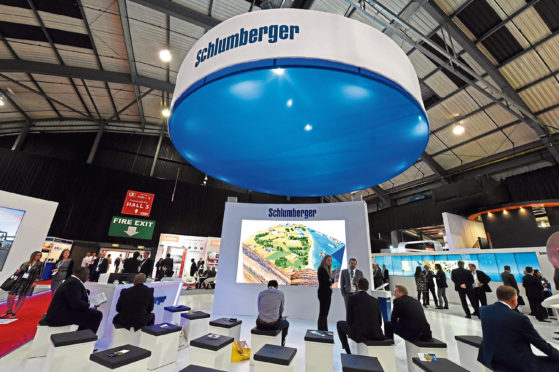In a cartoon drawn by George du Maurier captioned “True Humility” that appeared in Punch magazine on November 9, 1895, a meek curate is depicted eating an egg at the bishop’s breakfast table.
The bishop expresses concern that the curate has been served a bad egg. The curate doesn’t wish to trouble or offend the bishop, so he replies, “Oh no, my lord, I assure you! Parts of it are excellent!”.
The point of the joke was that an egg that is partially off would be entirely unpalatable; the good bit being rendered inedible by the bad. However, over the years, the sense of the “curate’s egg” has shifted to mean something that is partly good and partly bad.
Next month, as Aberdeen hosts SPE Offshore Europe, again showcasing thought leadership on the latest trends in technology, equipment and processes across the upstream energy sector supply chain, North Sea exploration could be described as a bit of a curate’s egg. But in which of these two senses?
At the beginning of the year, in an opinion piece published by Wood Mackenzie, Neivan Boroujerdi expressed the view that “The industry is in a better place in 2019. It is making money, even at $58/bbl. Confidence has returned to the sector.” There were four broad themes supporting that view – exploration was back; some big transactions were likely; there was a new wave of projects; production was stable. But he also expressed the view that uncertainty loomed. As the Talking Heads song goes, same as it ever was.
As we approach Offshore Europe, there is indeed uncertainty. The world is moving towards a reduced carbon future. Our new PM’s perspective on the industry is unclear. The shape of Brexit (if indeed there is one) remains rudimentary. There is the possibility of an early election with an unpredictable outcome. And there is the potential for global recession. So how does this bode for the supply chain?
No reminder is required of the dramatic fall and then partial recovery in oil prices. We have experienced fragmentation and technological advancement at a rate previously unknown. The industry’s response was to examine its processes and create a more streamlined model. The sector proved to itself that it could do business more cheaply. But at what cost? Operators looked to their own short term interest, cutting deep into the muscle of the supply chain. Access to a top-class supply chain is an essential element in attracting investment to the UKCS.
In its recent business outlook report, Oil and Gas UK reported that “While the supply chain has demonstrated its resilience and adaptability in recent years, reductions in revenue, margins and cash flow have placed many companies in a position of financial distress.”
But my inner Pollyanna encourages me to be positive about the future. Darwin’s theory of evolution was not that the strongest or the most intelligent of the species survives, but the one most adaptable to change. The supply chain has adapted and will continue to do so.
Since the downturn, we have seen efficiencies created through technology and collaboration. As well as vertical integration in-house, business partnering has provided a wider range of services. New revenue models have been created with a greater sharing of risk and reward. There has been integration along the field life cycle and a saving in costs through consolidation. Sustained investment in new technologies is capturing new growth. Products are designed with TCO (total cost of ownership) in mind.
To prosper in the medium to long term, the sector requires continuing energy and imagination in looking for ways to diversify and increase efficiencies. Above all, it requires vigilance to ensure that complacency has no place in its future.
For the final edition of Punch, published in 1992, an anonymous artist redrew the famous cartoon, but with a more physically imposing curate carrying an expletive alongside “This egg’s bad.” Offshore Europe provides an opportunity to demonstrate that this is not true of the Oil and Gas industry.
Philip Rodney is former chair of Burness Paull and founder of Rimalower Consulting

